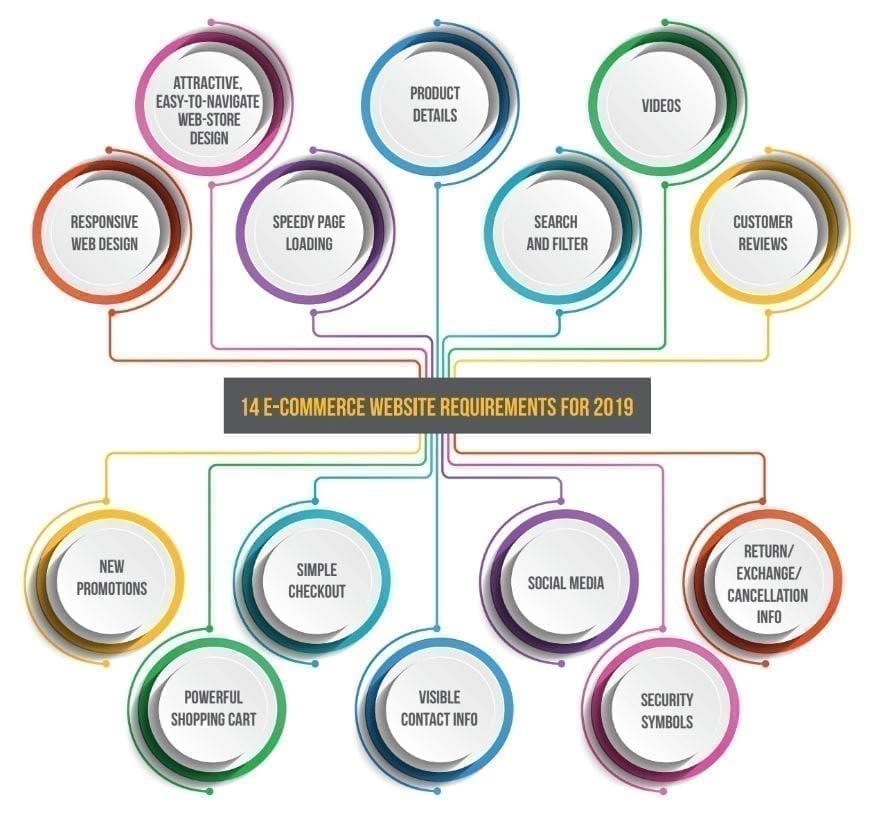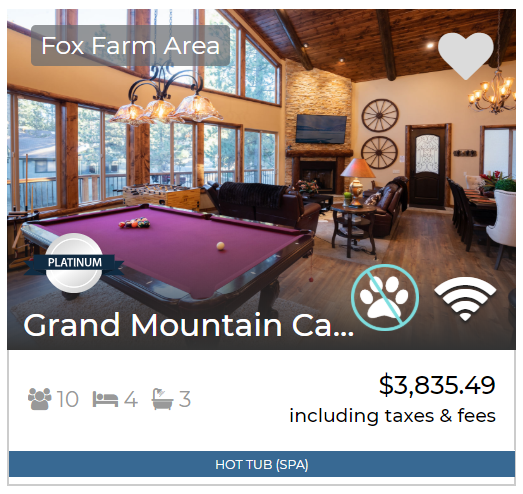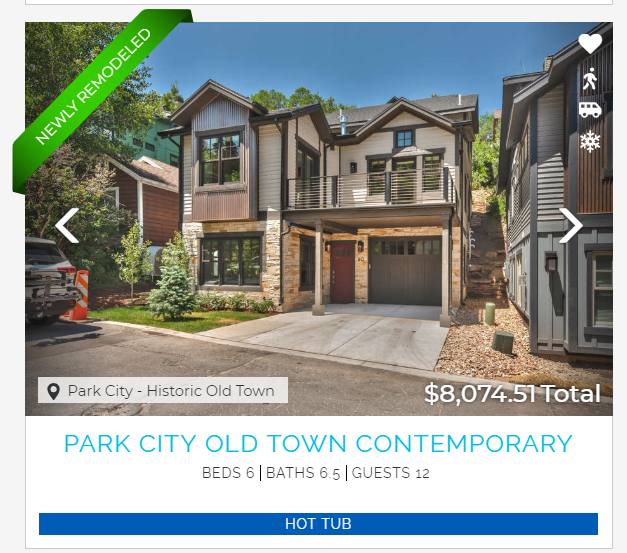Vacation
rental management websites have come a long way in the past decade. The
addition of quotable rates, professional photos, advanced filtering, comparison
shopping, mobile-friendly design, new security requirements, and live chat have
turned rental websites into dynamic, fully integrated e-commerce platforms.
Few people in the vacation rental industry know more about creating conversion-based, relevant websites than Bluetent president Peter Scott, InterCoastal Net Designs (ICND) owner Brandon Sauls, Bizcor CEO Josh Guerra, and Q4 Launch founder Matt Bare.
We reached out to these industry leaders for their recommendations on must-have elements to help vacation rental managers ensure their websites are meeting the needs of consumers in 2019, from functionality to content to building trust and thought leadership.

Functionality
As property
managers review their company websites, these leaders advise not forgetting to
incorporate the following functional elements.
Mobile for Browsing versus Booking
With
more and more traffic and booking originating via mobile devices, it is critical
in 2019 that websites are optimized for mobile for both browsing and booking. Bluetent’s
Peter Scott asks his clients, “Now that most of your visitors are on mobile,
how often do you test the booking experience? And users can browse your site on
mobile devices, but is your site ready for mobile bookings?”
Scott
added, “Next step in 2019 is preparing for mobile transactions.”
Cart Abandonment
“We
see it often, guests browse websites for the perfect rental, get distracted,
and leave the booking page or website altogether,” ICND’s Brandon Sauls said.
“This provides a crucial marketing opportunity for vacation rental companies: cart abandonment. With a website footer
bar or email campaign, guests can easily be reminded to complete their vacation
booking. While cart abandonment marketing isn’t new to the industry, these
products remain a website must-have in 2019 because they generate revenue that
would otherwise go untapped.”
Calculated Pricing in Results
According to Bizcor’s Josh Guerra, displaying total calculated pricing eliminates confusion and expedites the customer path through the booking process. “Instead of showing ‘starting from’ or ‘average nightly rates,’ show total out-the-door price if dates are entered,” he said. “It will reduce the feeling of being deceived, if you have extra fees or if the original dates selected

Remind Me to Book
Incorporating
a “remind me to book” option allows guests to set their own reminder so that
your company doesn’t fall out of the decision funnel. “The majority of website
traffic tends to come from mobile device users,” Sauls said. “More traffic is
great, but oftentimes mobile users can be distracted or not ready to complete a
purchase. Our Remind Me to Book feature allows guests to schedule a reminder
email, which will then prompt them to return and complete the booking. This
feature provides a great opportunity to increase direct online bookings, lead
captures, and overall brand awareness.”
Upcoming SEO Changes in 2019
Q4
Launch’s Matt Bare advises, “Be prepared for a lot of Google change.”
“We’re expecting some big changes in search engine optimization in 2019,” he said. “Our customers see 50 percent of their direct bookings coming from Google organic search, so it’s a huge thing to pay attention to. Continuing to evolve your website and improve your user experience will be key to succeeding in 2019. Additionally, we’re making a big push for Google My Business reviews.”
Website Content
Much of what makes a vacation rental management website a
relevant, user-friendly conversion machine does not require any new technology
at all. It is content.
2019’s most successful vacation rental websites need
professional content, and lots of it, including photos, descriptions, eye-catching
property titles, searchable amenities, reviews and area information.
Revisit Your Brand Story and Website Content
To differentiate your company in today’s
ultra-competitive vacation rental world, consumers need to understand and
connect with your brand,” Bare said. “Yet most vacation rental managers we talk
to are not telling their brand story with their website and have not updated
their core website content in years! Our content team has driven considerable
success increasing our customers e-commerce conversion rate by rewriting a lot
of core content with a fresh perspective.”
Photos and Reviews
“Reviews, reviews, reviews, and some fresh photos, “said
Bluetent’s Tom Kenyon, vice president of product. “It’s ironic with so much
talk around cutting-edge technology and features, that reviews and photos are
still what matters most to your guests. 2019 is the year for guest-centric
features, not bells and whistles.”
Photos and reviews make more of an impact than any other
feature on a website. Kenyon recommends that property managers ask themselves
the following:
- When was the
last time you updated your photos? - How often are
you checking reviews? - Do you engage
with reviews? Are you responding to all quickly and thoughtfully? - What is your
review generation strategy?
Amenities and
Features
In
each market, amenities and home features are key factors for travelers as they
choose a vacation rental that meets their needs. Guerra shared that communicating
property features and amenities using advanced filtering options is critical,
and property managers can boost conversions using property tags and ribbons in
on-site search results. “Using property tags and ribbons, you can quickly
identify amenities that mean the most to prospective guests,” he said.

Marketing and Value Proposition
Our
experts said a successful vacation rental web store should communicate what
sets the company apart and why consumers should trust the company. Scott
suggests asking the following questions:
- Are
you communicating why travelers should book with you? - Content
strategy: Are you blogging valuable content that doesn’t bounce people? - Are
you truly creating content people want to consume and inspiring them to dive further
into your website? - Are
you considering your value proposition in all your marketing initiatives? - Are
you letting people know how much they can save by booking direct?
Guests are Important, but Don’t Forget Homeowners
Vacation rental management websites
have two customers: guests and homeowners. While much attention is placed on
the guest-facing elements of the website, these experts were unanimous in that
websites must also sell a company’s thought leadership and management services
to homeowners.
“Gone
are the days of boring informational pages,” Sauls said. “If your property
management page includes text and contact information only, it’s time for an
upgrade. Property owners need to know why
they should work with your company and the unique experience you offer.
Statistics, images, videos, and testimonials are all strong selling points to
include on your property management page. Succinct messaging and an
eye-catching design may just be the push you need for stronger homeowner
acquisition.”
Guerra agrees and believes it is important to
use search marketing campaigns to reach homeowners. “If you plan to run on
aggressive online marketing campaign in the vacation rental industry, then it’s
vital to develop a landing page dedicated to owner acquisition.” He also recommended more value-added
content to drive leads from owners and improve on-site inventory acquisition
efforts (i.e., how to make more money on your vacation home, property care
checklists and best practices, market statistics, and industry/company
reporting).
Owner-targeted
content designed to provide resources and education for homeowners helps
companies build a position of thought leadership, demonstrates knowledge and
transparency, aids in paid online marketing efforts, and has an added benefit
of improving search engine visibility.
Security and Trust
Our
experts also told us that online security and trust in vacation rental
management websites are must-haves in 2019.
Bluetent
asks property managers, “Are you building security and trust with your guests? Does
your website meet accessibility standards and standards of the American
Disabilities Act? Is your booking engine PCI compliant and are you accredited?”
“We’ve
seen a strong influence in Google’s E-A-T principle as it pertains to organic
rankings,” Sauls said. “E-A-T stands for Expertise-Authority-Trustworthiness.
What changes can be made directly on your website to reflect this? A strong ‘About
Us’ page. Your vacation rental company has a story. Use your website to convey
your unique team and history to instill trust in your visitors.”
Looking to the Future
According
to our experts, building a website that is adaptable for the future is one of
the main things a property manager can do to achieve long-term success.
“Think
for the future,” Bare said. “With the pace of change in technology right now,
most websites are outdated the day they launch. We believe websites need to
evolve and function more like software where they are consistently getting new
features, updates, and fixes without the vacation rental manager having to
think about it or ask for it. Driven by a strategic look into the future, your
website continually gets better and is never out of date again.”